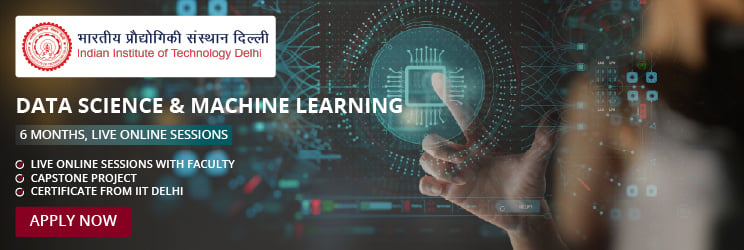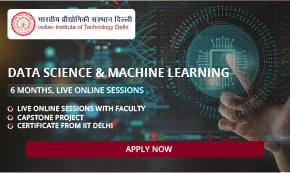Data Science vs Decision Science: Key Differences

With the growing potential and demand for data science, big data, machine learning and artificial intelligence in today’s world, there is enormous demand for skilled professionals in this field.
However, data science is one of the most popular domains and is often confused with decision science, as the terms sound similar. There are similarities in how both roles are structured, and even the skills required are similar.
Despite the similarities, there are different from one another.
This article will help you differentiate between data science and decision science, providing more clarity about their place in the industry.
What is Data Science?
Data science is an interdisciplinary domain that applies different scientific algorithms and techniques to extract meaningful insights from various forms of data. This data can then be used to analyse and apply across domains.
What is Decision Science?
In decision science, complex quantitative data-driven methods are combined with cognitive science for decision-making, policy planning and other development activities. It aims at transforming valuable insights into actionable company determinations.
Data Science vs Decision Science: Key Differences
The key differences between data science and decision science are as follows:
| Factors | Data Science | Decision Science |
| Focus 4 | Data analytics plays a key role in generating significant insights for further usage. | The insights obtained are transformed into data-driven business conclusions. |
| Purpose 1 | Data scientists apply previous data trends of a company to build more profitable decisions and create solution models for problems. | Decision scientists, on the other hand, focus on the client’s requirements and forecast forthcoming products or services.
|
| Viewpoint on Data 4 | Data acts as a tool for the development and improvement of the business. | Data is used as a tool to make meaning full decisions.
|
| Role 4 | Data scientists perform deep analysis of data using data processing, algorithms, and experimental statistics to build more useful products and services.
For data scientists, data quality and its analysis are of prime importance.
High-quality data analysis comes first, and business context is the secondary objective. |
Decision scientists consider data as a tool to drive better decisions to solve typical business challenges.
Decision scientists perform data analysis from the objective of decision-making.
In comparison to data scientists for decision scientists, the business problem comes first.
|
| Application 5 | Data science is applied in numerous fields like finance, banking, e-commerce, healthcare, telecommunication, education, agriculture, manufacturing, sports, media, etc. | Decision science is mainly applied to public healthcare and policy, law and education, military science, environmental regulation, business and management, etc.
|
| Challenges 1 | The different challenges faced by data scientists include:
● Use of multiple data sources for gathering data. This often makes it difficult for data scientists to understand huge amounts of heterogeneous data and draw conclusions. ● Data security against cybercrime and cyber threats is a major concern for companies. Thus, securing data is an added hectic task. ● Reasonable business key performance indicators and well-described metrics are required to maintain the performance and reach company expectations. ● Being a technically driven domain where one needs to possess exceptional data science expertise, companies experience a lack of skilled data science professionals.
|
The various challenges faced by decision scientists include:
● Decision scientists continuously had to look for the best method to meet business requirements. They should possess a strong analytical mindset and sometimes think out of the box to reach the right conclusion. ● Obtaining trustworthy and factual data from a list of sources is a major challenge faced by decision scientists. ● Decision science is a new and growing technology, and companies mostly find it difficult to get skilled professionals in this domain.
|
| Forthcoming Trends 4 | With the growing need for data science and related technology, in the future, data science will be involved increasingly in automation, augmented reality, robotics, chatbots, virtual assistance, etc. | Decision science in future could be further incorporated into automatic decision-making appliances, data empowerment and different specialised field.
|
| Scope 1 | Data science is a growing and developing domain with multiple job roles and career pathways. Beginners in the data science field can opt for -data analyst, business analyst, data architect, entry-level data scientist, etc.
With experience, one can even go for a lead data scientist, big data engineer, machine learning engineer, etc. |
The decision scientist’s role is to prioritise customer needs and deliver future solutions. Decision scientists should possess strong analytical and mathematical knowledge.
Decision scientists work as data analysts, business analysts and software developers.
|
Organisations mostly depend on data science to solve all their business problems. However, a combination of data science and decision science is a better approach. With the help of data analytics in business decisions, data scientists and decision scientists can lead to probable data-oriented decisions.
If you want to learn how companies grow their business with data science, machine learning, and artificial intelligence applications, data science courses would be an excellent choice.
Certified data science and analytics courses are offered by Emeritus India in alliance with institutes like IIM, IIT and ISB. These courses will help you learn in-demand data science, machine learning and big data tools and techniques. So, enhance your data science skills and become industry-ready with our courses.







